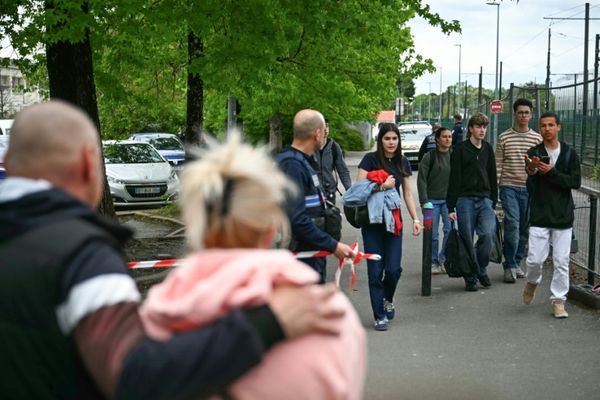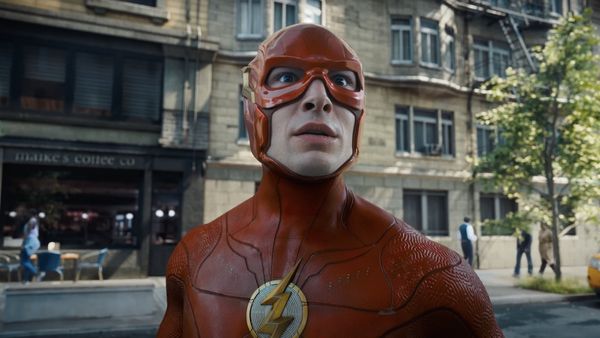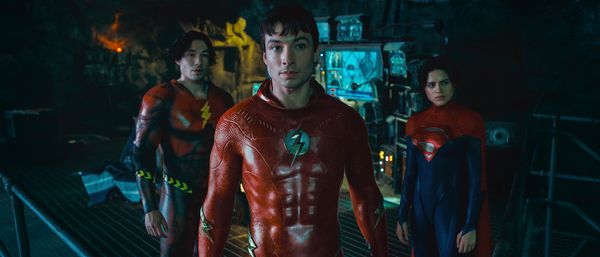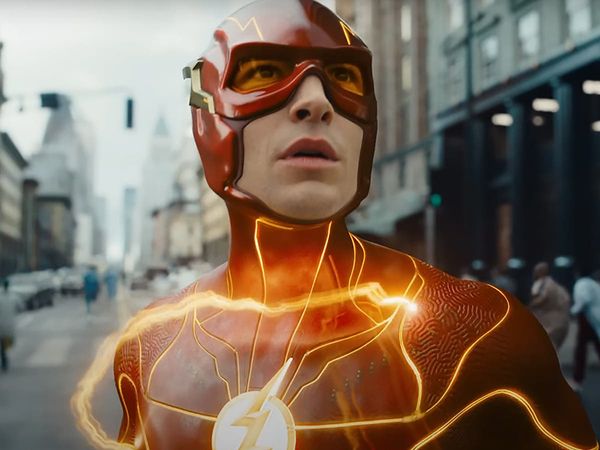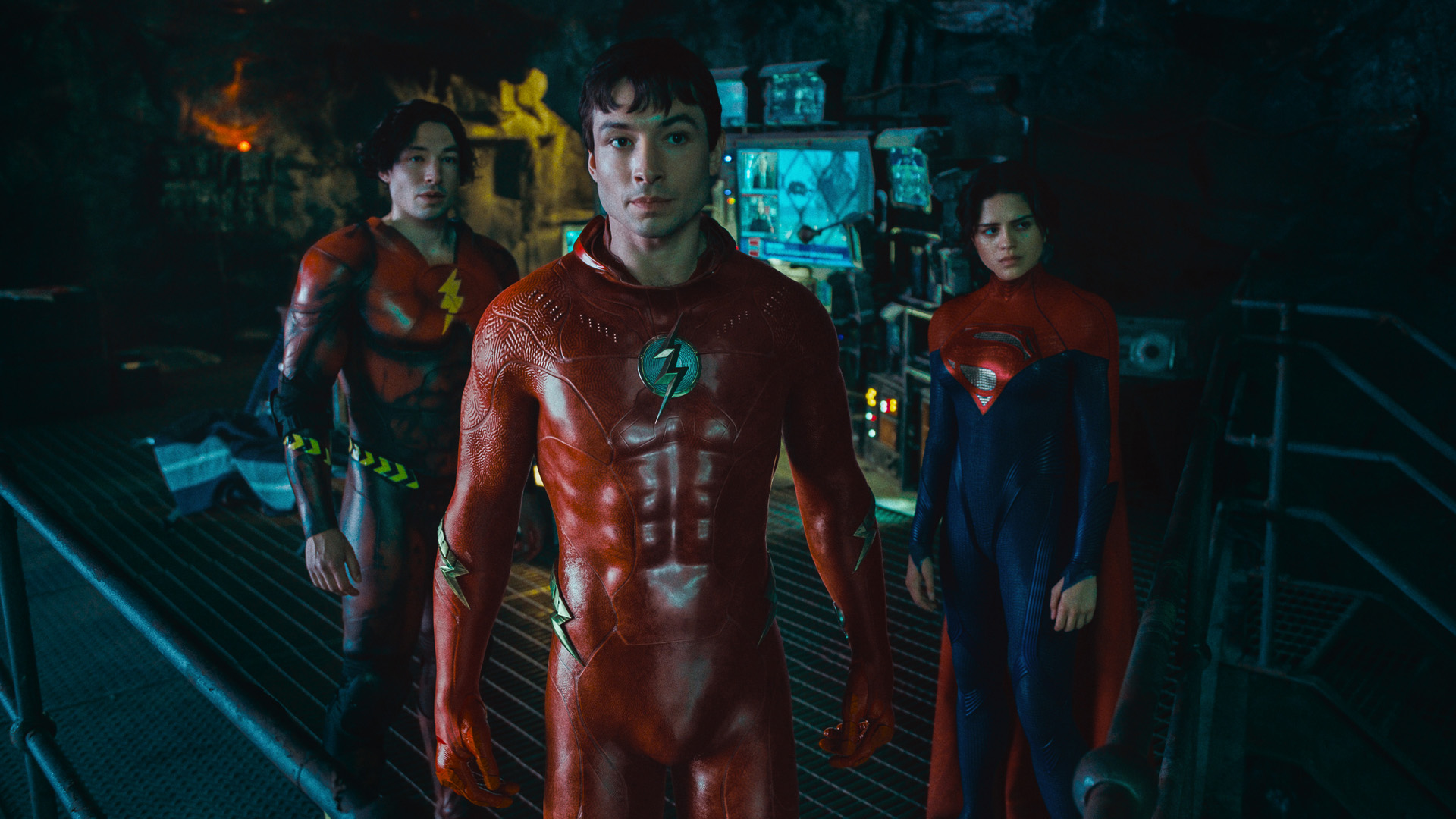
Editor's note: this review is based on an unfinished version of The Flash movie. Where necessary, we've stated as much when discussing some of the film's less positive elements.
For a character billed as the fastest man alive – in the DC comic book space, anyway – The Flash’s first big-screen adventure has been incredibly sluggish. Nine years have passed since the DC movie was first announced, but numerous development issues, plus controversies surrounding lead star Ezra Miller over the last three years, have contributed to its near-decade-long delay.
Now, though, The Flash is finally ready to speed into theaters. And, with the film reportedly wowing critics and fans at numerous special advanced screenings, plus its dual role as a capper for the DC Extended Universe (DCEU) and foundational stone of the DCU, James Gunn and Peter Safran’s new-look DC Cinematic Universe, big things are expected of it.
In the main, The Flash doesn’t disappoint. It’s an entertaining, stylish, and poignant film that simultaneously acts as a fitting finale to, and necessary reset of, the DCEU. There are, though, slight imbalances to its narrative structure and character usage – niggles that don’t fundamentally stop it from being one of the best superhero movies ever, but which do prevent me from being able to categorically call it DC Studios’ best-ever movie.
Running to your past
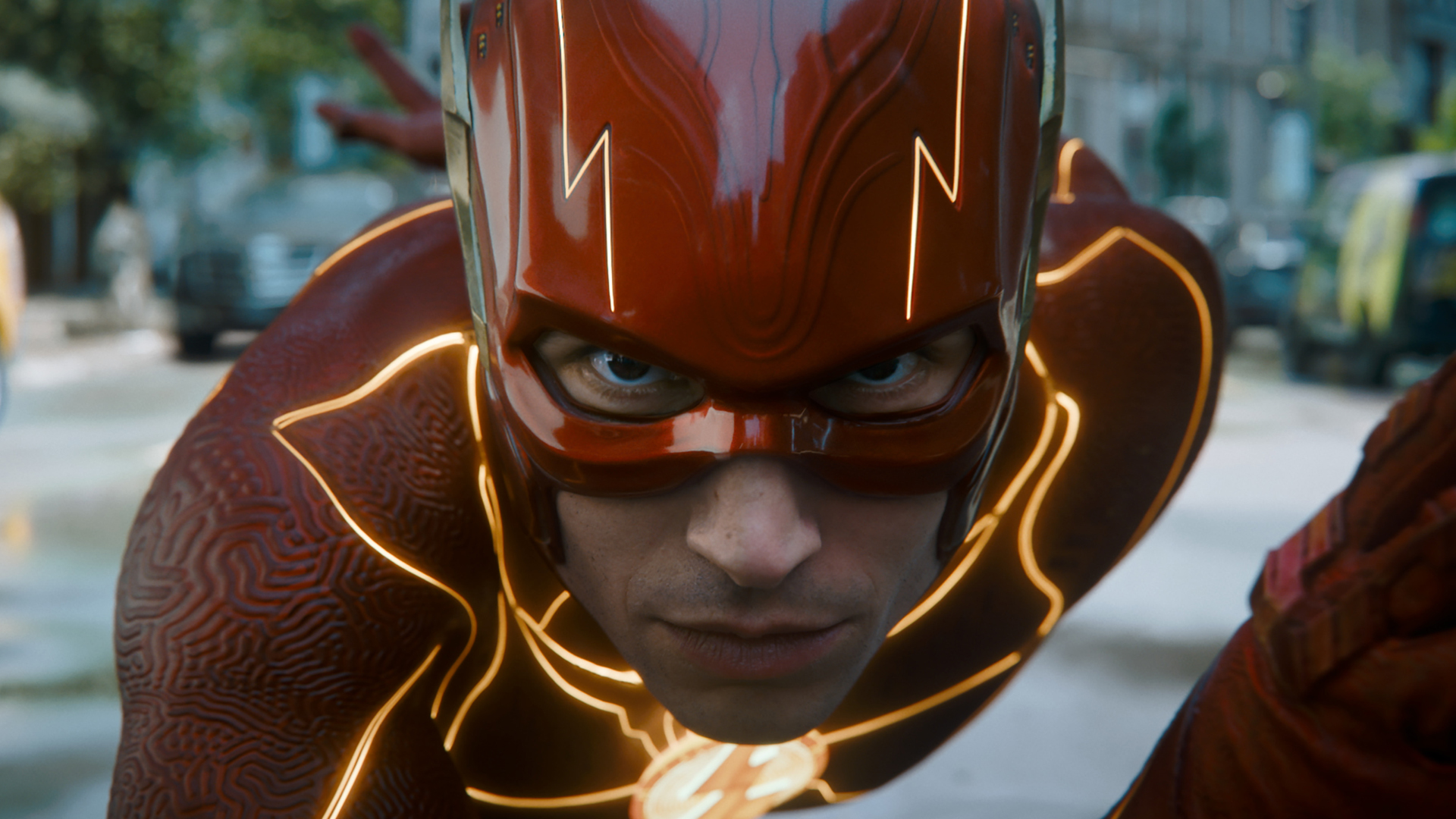
The Flash, which is set an indeterminate period of time after Zack Snyder’s Justice League and is based on DC’s 2011 Flashpoint comic storyline, sees the titular hero/Barry Allen (Miller) travel back in time to try to avert his mother’s death. That’s despite the misgivings of the Snyder-Verse’s Bruce Wayne/Batman (Ben Affleck), who warns Barry that his plan could be world-ending.
Unsurprisingly, that proves to be the case. Barry’s time-traveling plan winds up trapping him in an alternate reality – without his superhuman abilities, meaning he can’t journey back to his own dimension. Oh, and General Zod (Michael Shannon), who died in 2013’s Man of Steel, is alive, and set to invade Earth. Good job, Barry.
But all is not lost. There are some superheroes in this reality, and Barry needs their help to thwart Zod and return home. Cue a team-up between Barry A (i.e. the Snyder-Verse’s Barry Allen), this reality’s Barry Allen (also played by Miller) – we’ll refer to him as Barry B from now on – as well as Kara Zor-El/Supergirl (Sasha Calle), and the Tim Burton-Verse’s Bruce Wayne/Batman (Michael Keaton) in a bid to save the fracturing DC multiverse from collapsing in on itself.
Watching two versions of Barry might be a bit much for some audience members
It’s this quartet of heroes that The Flash fascinatingly hangs its proverbial hat on; and for the most part, it’s a collaboration that works in the context of the story being told.
The nostalgic return of Keaton’s Batman is arguably The Flash’s biggest selling point, with the actor reprising his role as the Caped Crusader for the first time since 1992’s Batman Returns, one of the best Batman movies of all time. Pleasingly, Keaton’s spin on the legendary vigilante hasn’t lost any of the eccentricity or get-things-done persona that made his take so iconic in the first place. From his Big Lebowski-inspired introduction and his bad-ass takedowns of enemies, to his amusing one-liners and intellectual decision making, Keaton’s Batman is a scene stealer. Fans of all ages and DC movie eras will certainly lap up his performance.
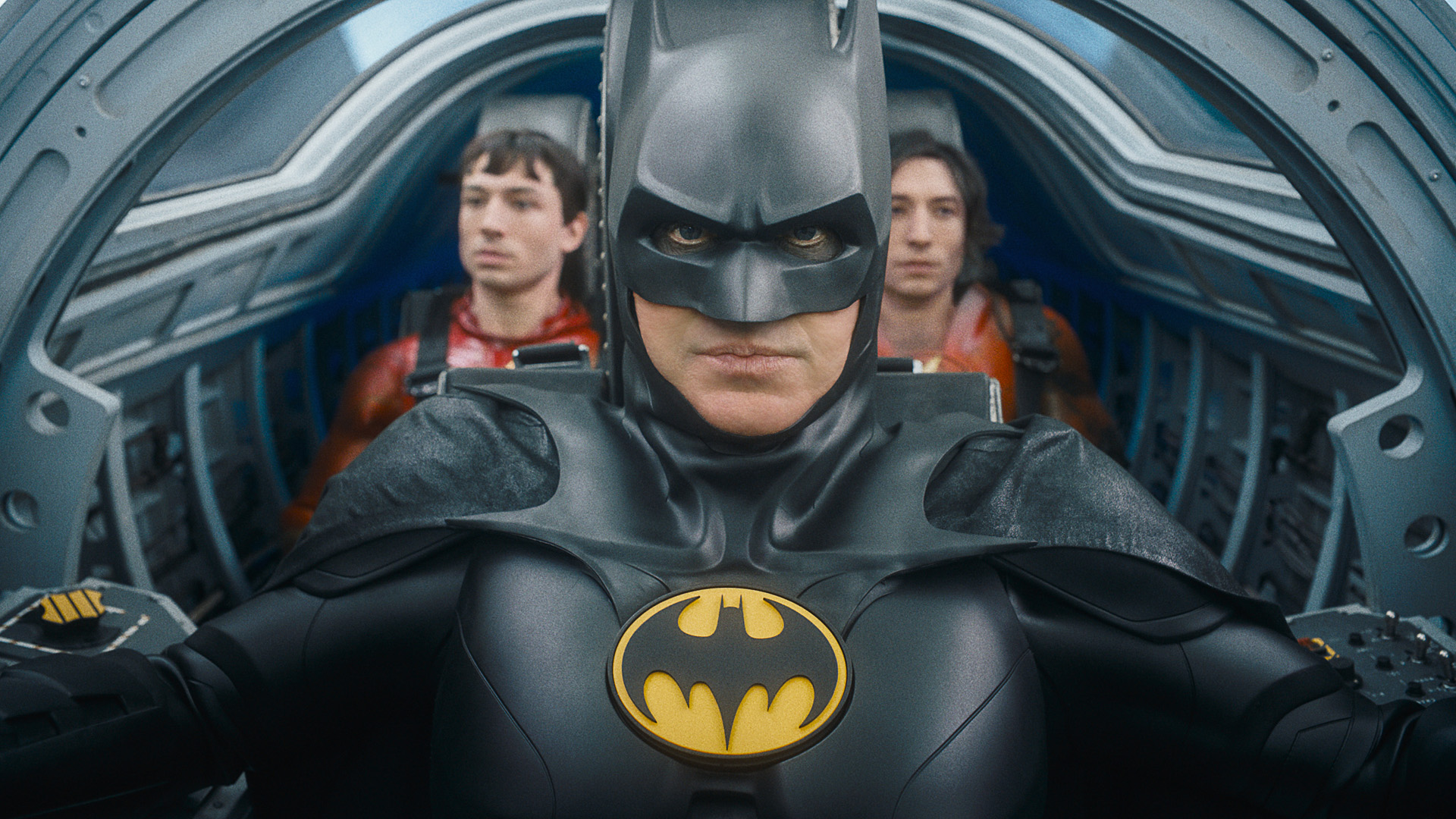
Calle, too, impresses in her first outing as the semi-disillusioned, scowling Supergirl. Powerful yet vulnerable, and determined but impulsive, Calle’s Supergirl is an edgier Kryptonian than most will be used to seeing on the silver screen. Her gritty personality is in sharp contrast to Keaton’s optimism-fuelled Dark Knight – a juxtaposition similar in tone to that between the two Barrys (more on them shortly) – which lends itself well to the darker, more foreboding nature of The Flash’s narrative. If Gunn and Safran's forthcoming Supergirl: Woman of Tomorrow film follows the bleak-turned-hopeful storyline in its likeminded comic book series, I'm sure plenty of viewers would be happy to see Calle reprise this role in the reborn DCU.
So it’s disappointing that both Batman and Supergirl are somewhat underused within the confines of The Flash's plot. The duo have been front and center of The Flash’s official trailer and other marketing materials, suggesting that they would have sizable roles in the film’s plot.
In some respects, that’s certainly the case. Keaton’s Batman is key in aiding the Barrys in rescuing Supergirl from her Siberian prison, concocting a plan to help Barry A reacquire his Speed Force powers, and the showdown with Zod’s forces. Supergirl, too, plays a huge role in that climactic battle, and the film’s finale to boot. Still, while The Flash is primarily a story focused on Barry Allen, I can’t help but feel that this pair weren’t fully utilized. Likewise Zod and his forces, whose position as true villains of the piece is, major spoilers notwithstanding, something of a misdirect.
Just the (turbocharged) two of us
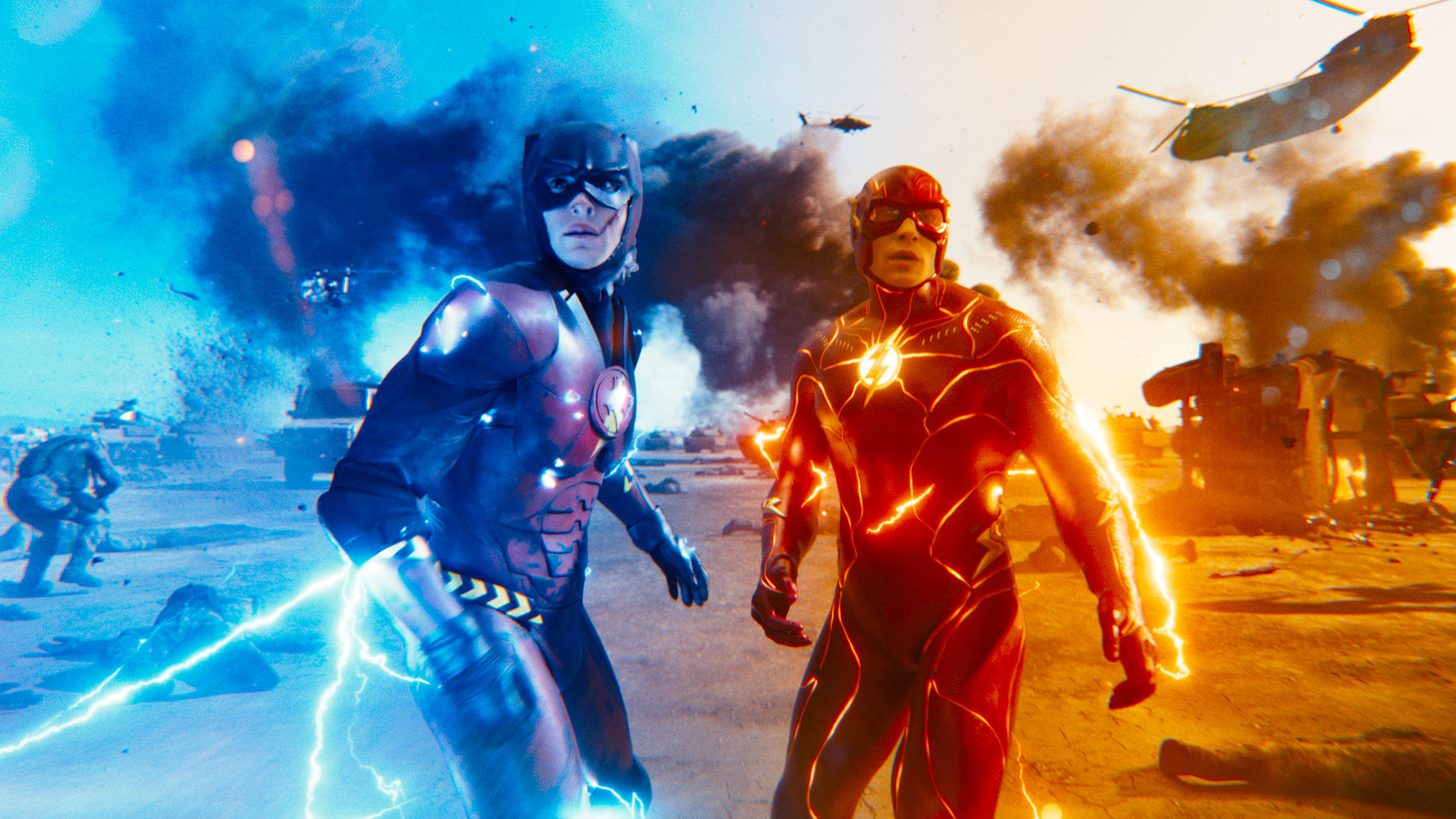
This is a parabolical ‘be careful what you wish for’ tale where Barry Allen is concerned, though. Logic dictates that he’s the star of the show, and The Flash does a great job of digging into the duality that exists between his private and superhero lives. It’s a contrast that’s captured particularly well in the movie’s first act, which sees Barry – in typical superhero fashion – struggle to balance his two lives, something that other superhumans, such as Marvel’s incredibly popular character Spider-Man, also grapple with.
Seeing Barry operate in this reality is all fine and well, as are the brief interactions he has with Affleck’s Wayne and Keirsey Clemons’ Iris West, although Barry’s conversations with the latter are superfluous additions to an already stuffed plot. And, while this slice of the film is necessary to set up the main narrative to come, it feels a bit choppy and erroneous in the grand scheme of things.
It’s in the paradoxical meeting, and subsequent buddy cop-style relationship, between the two Barrys, then, where The Flash truly shines. Miller does a stellar job of bringing both versions to life, with Barry A assuming the mentor role (and even using Batman-esque skills to devise plans to get out of his self-made mess, with mixed results) and Barry B installed as the wise-cracking, happy-go-lucky half of this unusual dynamic.
The nostalgic return of Keaton’s Batman is arguably The Flash’s biggest selling point
Admittedly, the prospect of watching two versions of Barry – a slightly irritating character at the best of times – might be a bit much for some audience members, especially in light of the controversies and legal issues Miller has been involved in. There’s also a potentially awkward scene early on that, in a certain light, may be viewed as being too close to the knuckle where the allegations made against Miller are concerned. If you consider The Flash’s appearance in Justice League and/or the incidents involving Miller to be distasteful, this probably isn’t the film for you.
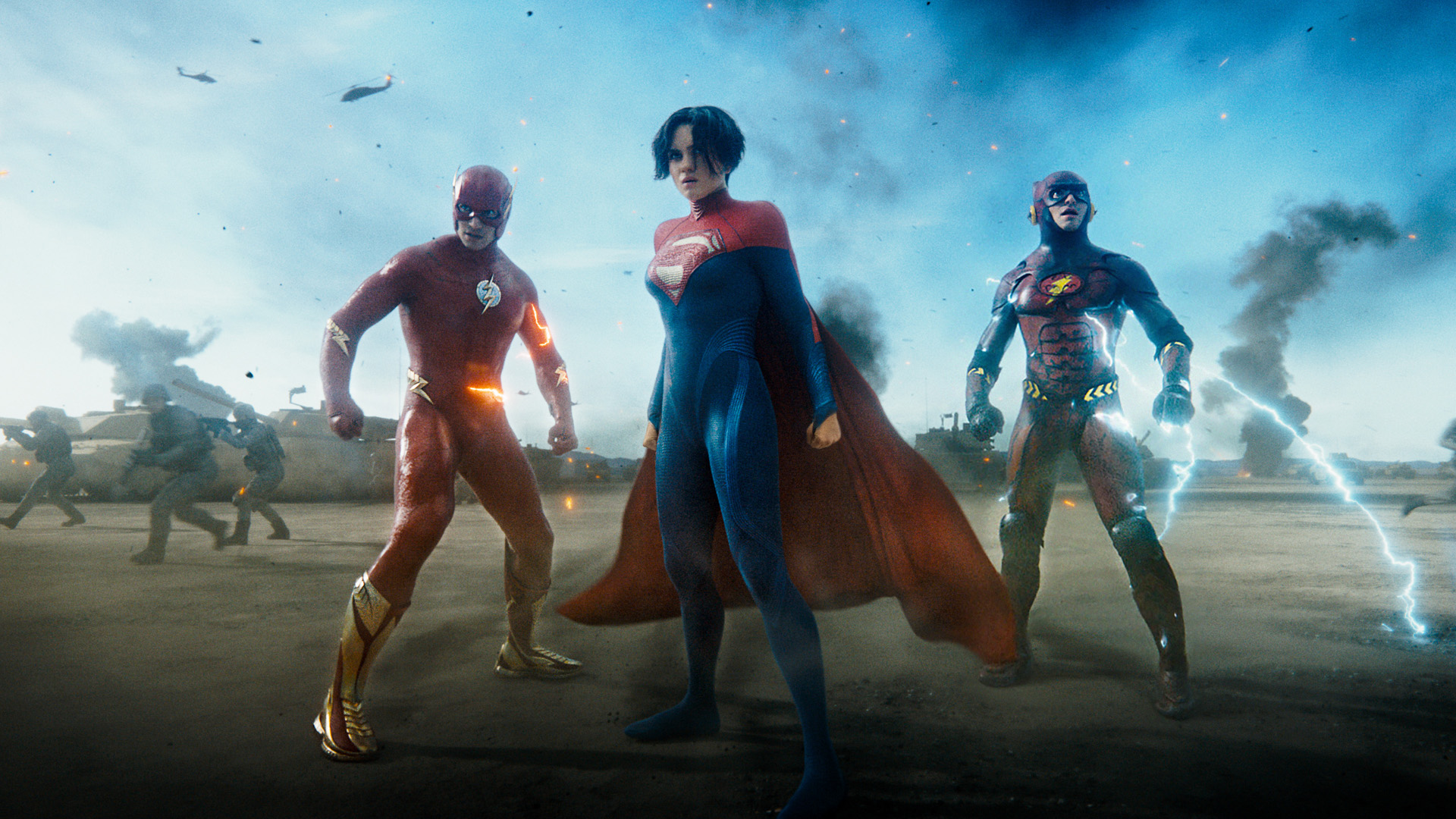
Visually, The Flash is, well, a flashy spectacle. At times it looks gorgeous, with the visual effects (VFX) depicting the Speed Force – a cosmic energy field based around velocity and movement – and Barry A's time-traveling escapades (viewed through the lens of a coliseum-style arena) being real highlights. The latter is particularly spooky and sinister, especially during the movie’s third and final act, which speak to director and producer siblings Andy and Barbara Muschietti’s horror filmmaking origins.
There were a couple of instances where the VFX looked plasticky or undercooked in my screening. As revealed by Warner Bros. Pictures pre-viewing, however, the version that critics saw wasn’t the movie’s final cut, so I’m hopeful that any glaring problems will be ironed out ahead of release.
As for other narrative-based elements, The Flash largely delivers on the style and tone that were teased throughout its promotional campaign.
Its snappy one-liners and other jokes are laugh-out-loud funny, and it isn’t afraid to poke fun at itself – there’s a brilliantly amusing scene that mocks Barry’s superhero running style – where necessary. These don’t detract from the movie’s serious and emotionally resonant moments, though, nor do they take precedence over The Flash’s action sequences, which are spectacularly and often brutally assembled. Throw in multiple references to Warner Bros’ superhero movie history – DCEU and otherwise – and unexpected cameos (don’t worry, I won’t spoil them here) and there’s plenty for DC fans and general cinema lovers to be awestruck by.
My verdict
The Flash is a fantastic superhero film, and arguably the best DCEU movie of all time. That latter bar, however, is not a particularly high one to clear. Few DCEU films can lay claim to that title, so The Flash’s competition for top spot – in the best DCEU films section of our DC movies in order guide – is middling at best.
Equally, there are better DC-produced movies than The Flash, visually arresting, narratively tight, amusing, and action-packed though it is. Christopher Nolan’s Dark Knight trilogy, The Batman, and Superman: The Movie are all superior non-DCEU films in my eyes. Ultimately, then, The Flash, had to be a perfect flick to change my mind.
All that said, The Flash can still be regarded as a terrific DCEU film, and that’s something worth celebrating. It balances its various universes, characters, story beats, and themes (including seeing the error of your ways, learning to let go, and accepting that your past informs who you are) with distinction, and is largely devoid of the issues that many other DCEU movies suffer from.
It may also sound odd to call it a fitting end to the DCEU, especially when Blue Beetle and Aquaman 2 are yet to be released (they'll arrive in theaters in August and December this year). As the focal point for Warner Bros' soft reboot of its multimedia superhero franchise, though, The Flash movie is an thrillingly apt conclusion to the entertainment behemoth's divisive big-screen film series.
The Flash movie may have moved through the process from initial pitch to theater release rather more slowly than its titular hero, but it was certainly worth the wait.
The Flash lands in theaters on Friday, June 16.


